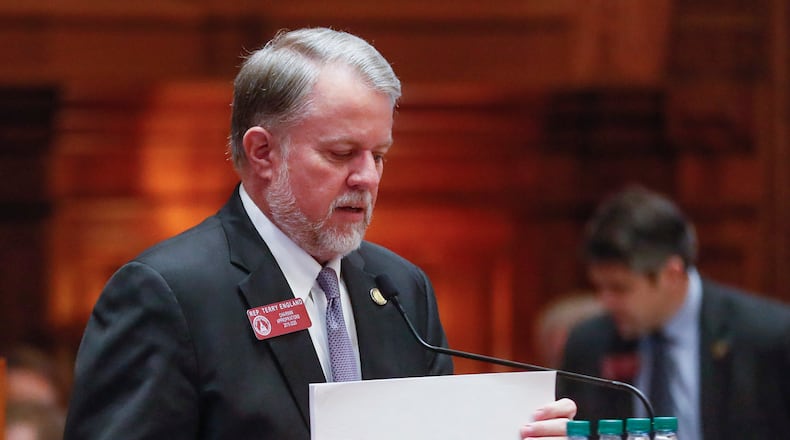The leaders of the Georgia House and Senate budget committees this week joined the chorus of state and local officials asking Congress to back more aid to local governments in the wake of the coronavirus recession.
The economic shutdown brought on by the pandemic has led to mass unemployment, and some businesses remain closed. Many of those that have opened are doing limited business.
Because of that, state tax collections have plummeted.
Last week, House Appropriations Chairman Terry England, R-Auburn, Senate Appropriations Chairman Blake Tillery, R-Vidalia, and Gov. Brian Kemp's budget director Kelly Farr, sent a memo to state agencies asking for plans to cut 14% from their budgets in the coming year. The new fiscal year begins July 1.
That will mean cutting more than $3.5 billion, a move that could bring furloughs and layoffs among Georgia's 200,000 teachers and state employees.
Last month the nation's governors asked Congress for a $500 billion aid package to help states make up some of the revenue losses they expect to see until the economy recovers. Some experts say the coronavirus recession could have a greater impact on state governments than the Great Recession.
England and Tillery sent a letter Monday to the state’s congressional delegation lending their voice of support for more federal aid.
“As the chairs of the appropriations committees of the Georgia General Assembly, we are formally requesting your support for the timely approval and disbursement of these funds to close the unprecedented gap in dollars required to maintain a conservative and lean government framework of services for the state of Georgia and our constituents,” the letter read.
“We share your regard for conservative spending practices, and despite the expected reductions in force and services for our people because of these painful budget cuts, we will do our part,” it read. “In turn, we respectfully ask that you advocate and support the appropriation of $500 billion in flexible state stabilization funds that are proportionately distributed to help offset greater upheaval and longer recovery in Georgia.”
They said key elements of Georgia’s economy, including Atlanta’s airport and the hospitality industry, have been crippled by the pandemic.
States, unlike the federal government, can’t spend more than they collects in taxes.
While state lawmakers aren't expected back until June to approve a budget, England's committee is holding its first virtual budget hearing Thursday.
Through Georgia's state's budget, taxpayers help educate 2 million children, provide health care to more than 2 million Georgians, build roads and bridges, manage parks, investigate crimes and incarcerate criminals, and regulate insurance firms and utilities, along with dozens of professions. The state issues driver's licenses and helps pay for nursing home care for the elderly.
The state is a major provider of basic medical coverage and treatment for mental health and drug addiction, and it helps fund public health programs that are fighting the pandemic.
Besides paying salaries, it also helps make sure that hundreds of thousands of ex-teachers, university staffers and state employees receive pensions and health care.
About the Author
Keep Reading
The Latest
Featured




